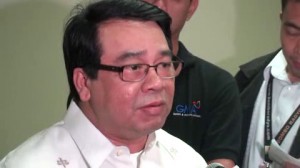Marcos victims ask Congress to use Hawaii class suit list
A group of martial law detainees on Monday appealed to Congress to automatically consider some 9,000 individuals who won a class suit against the Marcoses in Hawaii victims of human rights violations entitled to government compensation.
Samahan ng Ex-detainees Laban sa Detensyon at Aresto (Selda) directed its plea to the bicameral conference committee, which is hammering out the final version of a bill that seeks to indemnify victims of abuses during the Ferdinand Marcos dictatorship.
The remuneration would come from the P10 billion in Marcos ill-gotten wealth that Swiss authorities had returned to the Philippine government after the dictator’s ouster in the 1986 Edsa People Power Revolution.
Selda, which led the filing of the Hawaii case, said claimants must be conclusively presumed as human rights violations victims, as stated in the House of Representatives version of the bill.
The bicameral conference committee is debating on whether to follow the House version or the Senate version, which states that there is a “disputable presumption” that the claimants are victims, meaning they are subject to validation. The panel is to meet on Wednesday following a first meeting last week.
Article continues after this advertisementIn a statement, Selda chairperson Marie Hilao-Enriquez said that to make the claimants in the Hawaii case undergo a rigorous validation process again would undermine their efforts to seek justice.
Article continues after this advertisement“Such a provision is dangerous, for if this is included and passed into law, the victims who filed and won the Hawaii case will once again undergo and endure the painful and rigorous process to prove that they were indeed violated during martial law,” Enriquez said.
“We are adamant that conclusive presumption should be the principle adopted to automatically consider the 9,539 victims who pursued and won the Hawaii case under the proposed Philippine law,” she added.
Enriquez also said the group was pushing the compensation bill to enforce the 1992 judgment in the Hawaii case, which was to indemnify the martial law victims.
Bayan Muna Rep. Neri Colmenares, one of the Hawaii claimants and a coauthor of the bill, also said that it would be dangerous to do away with the conclusive presumption clause.
He said some of the victims may be unable to present evidence to defend themselves if their application for compensation was contested, considering the many years that had passed.
Colmenares would not be filing any application for compensation since he was the author of the bill, but he added that he himself would be hard put to find the evidence to show he was tortured and imprisoned for four years.
Outrageous
And if a Hawaii claimant was denied by the compensation board, it would just lend credence to the Marcoses’ claim that many of those who filed the court case were fake martial law victims, according to Colmenares.
“It is surely unkind to make the Hawaii victims, the majority of whom are very old now, to again relive before the compensation board their rape, torture and sufferings. This is outrageous,” he said.
He also defended the House provision that states that 80 percent of the compensation fund would go to the Hawaii claimants, and the remaining 20 percent to other claimants.
About 10,000 purported victims have filed cases against the Marcoses following the long and tedious court processes in Hawaii. But Congress is not sure how many of those who did not file cases will apply for compensation, especially since 40 years have passed since martial law was declared in 1972.
Selda also said the compensation bill must recognize all human rights violations victims during the martial law regime, and not just those who were exercising their rights “peacefully” as stated in the Senate version.
“It will be the height of historical amnesia and ignorance to only recognize the rights violations against those who ‘peacefully exercised their rights,’ as if the situation during the martial law years would permit such an exercise,” Enriquez said.
She said those who marched and defended themselves against the Philippine Constabulary and those who joined the communist New People’s Army also had rights.
Joker Arroyo slammed
Enriquez criticized Sen. Joker Arroyo for reportedly derailing the panel’s initial meeting last week by insisting, as embodied in the Senate version of the bill, on limiting reparation to those who fought the dictatorship through peaceful means.
“Arroyo wants to exclude those who resorted to armed resistance during martial law, implying that in doing so, they had given up their rights,” Enriquez told the Inquirer after a meeting in the office of Sen. Teofisto Guingona III, chairman of the Senate committee on peace and unification.
Asked for a reaction, Arroyo’s staff released to the Inquirer without comment a letter from Loretta Ann Rosales, chairperson of the Commission on Human Rights, to Senate President Juan Ponce Enrile, pointing out that the 80-20 ratio provision in the proposed package would nullify the intention of the measure—to give reparation to all victims of human rights abuses.
Arroyo was one of the few prominent lawyers, including the late Jose W. Diokno and Lorenzo Tañada, who defended human rights victims during the martial law years. With a report from Cathy Yamsuan
